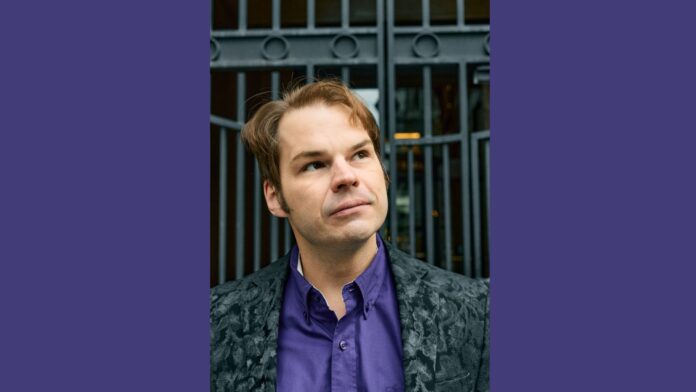Around 25 years ago, a young, gay, Philadelphia filmmaker and his company went to Fairmount Park to film what was to be his second feature length picture. The finished product, titled “A Chronicle of Corpses,” was released in 2000, and soon became something of a cult classic, highly regarded among devotees of the art horror genre.
On Nov. 2, the eve of the 25th anniversary of the film’s release, PhilaMOCA will be hosting a celebratory screening of “A Chronicle of Corpses” with director Andrew Repasky McElhinney and several cast members in attendance.
This is not the first time the film has been featured by a cinephile organization. In 2020, to celebrate the film’s 20th anniversary, the Museum of Modern Art (MoMA) in New York screened a restored version of the film, which it considers to be a classic in its genre.
Publicity materials from MoMA described the film and its style in glowing terms: “The Elliot family plantation is as withered and rotten as the remaining family members. Once prominent, the clan is now fearful of a real or imagined supernatural force beyond the walls of their moldering mansion. Dementia and alcohol haven’t helped, either, but at least there is Sara, the youngest member of the family, who could rescue their reputation. But the enigmatic horrors in the tangled woods might just be unavoidable retribution for the days when the Elliots were slave owners.
“Shot in 16mm, when director Andrew Repasky McElhinney was in his 20s, ‘A Chronicle of Corpses’ draws from a cinephile’s love of Gothic horror films, while establishing its own unique visual language, aided by cinematographer Abe Holz. The atmosphere is both languid and charged, the actors are keyed up with fear yet move like zombies, and the narrative is intentionally old-fashioned and reliant on such key antecedents as ‘Night of the Living Dead.’”
“Chronicle of Corpses” is also noteworthy in that it was one of the earliest films in the Gothic horror genre to have openly gay characters.
McElhinney is looking forward to seeing a new audience’s reaction, 25 years on.
“The film scene has changed so much in the last 30 years,” he said. “It’ll be interesting to see how a modern audience will react to the film.”
McElhinney admits that growing up queer in Philadelphia certainly influenced his early work — and still does.
“The original annual Gay & Lesbian Film Festival was a strong influence on me and even today, the Philadelphia sensibility courses through the work,” McElhinney said.
Nevertheless, he admits that his style has evolved over the years. In “Chronicle of Corpses,” the filmmaking was very controlled, each set up carefully staged, not unlike the approach taken by Stanley Kubrick. Over the years, he’s learned to loosen up a bit.
“As I’ve gotten older, I’ve discovered there’s a certain freedom in not being so composed,” McElhinney said.
McElhinney has continued making films since “Chronicle of Corpses.” In recent years, he has formed a creative partnership with another Philadelphia native, Greg Giovanni, remembered as head of the avant garde Big Mess Cabaret. This partnership will be on full display in their new project, “Casual Encounters: Philadelphia True Crime Confessions,” where they bring together their distinct perspectives on cinema’s traditions of noir and crime. The film is an epic compendium of narratives that collectively meditate on Philadelphia lives impacted by crime, law and order over the past several decades.
McElhinney and Giovanni have been working off-and-on on “Casual Encounters” for almost 12 years, and McElhinney says the finished work should clock in at an epic six hours or more. He also promises that the film will be finished within the next year.
“A Chronicle of Corpses” will be screened at 8 p.m, on Nov. 2 at PhilaMOCA, 531 N. 12th St. McElhinney and many of the film’s cast will be in attendance. For more information, visit philamoca.org.

